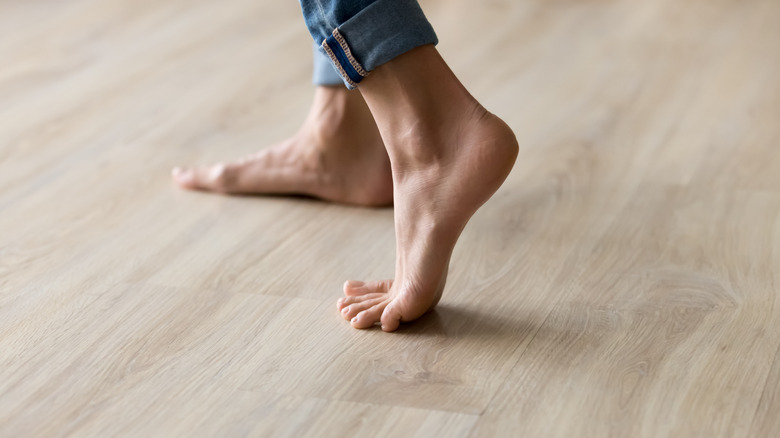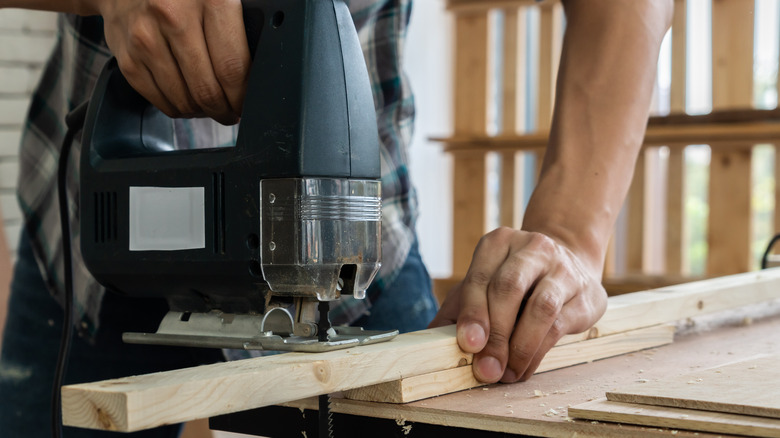What It Really Means If Your Floors Feel Bouncy
Do lamp shades rattle or glasses clink whenever you walk throughout your home? Do your hardwood floors feel — not so hard anymore?
If so, you're not alone. Bouncy floors are a common phenomenon in homes, according to This Old House's general contractor Tom Silva. Also known as spongy floors, this problem occurs in new and old homes alike. "Even structurally sound, code-compliant new floors can deflect, or flex, more than feels comfortable," per This Old House. As a result of this flex, or slight movement of the floor, it makes the surface feel bouncy when you walk on it, which can be unsettling.
Although there are three easy ways to fix bouncy floors — including using bridging, installing plywood along the joists, or placing a wall or beam under the floor, per carpentry company Family Handyman — you need to get to the bottom of the problem before you can properly address it. So keep reading to find out what exactly could be causing your floors to feel bouncy.
Three common issues could be causing your bouncy floors
There are a few reasons a home's floor can become bouncy, according to the home repair site Low Country Foundation Repair: poor structural design, foundation settlement, or moisture in a crawl space.
Concerning structural design, a house needs to be built in a way that appropriately distributes weight, or your floors will become spongy. Per Low Country Foundation Repair, a poorly constructed home that doesn't have floor joists, beams, and support columns properly spaced out will cause the columns to "sag and bounce."
If you know that your home is not poorly designed but you are still experiencing bouncy floors, it could be due to foundation settlement. "Over time, soils shift and settle with changes in moisture content and density, causing movement of the columns and beams above," according to the company. So, homeowners should check their settlement if they notice bouncy floors.
Finally, standing water or plumbing issues inside your home's crawl space can cause bouncy floors. The excess water can cause high humidity levels, which can warp wood, weaken your floor joists, and reduce their load-bearing capabilities, Per Low Country Foundation Repair.
So, if you have bouncy floors, it's probably time to seek professional help to identify and solve the problem before it gets worse.

